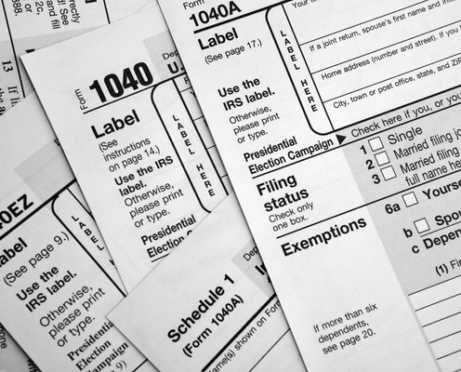
With the Internal Revenue Service (IRS) accepting 2020 tax returns as of February 12, now is a good time to gather documents and prepare to file as soon as possible.
Below are ten useful insights gleaned from tax publications including the from the American Association of Individual Investors' (AAII) 2020 Individual Investor’s Guide to Personal Tax Planning:
New Line for Recovery Rebate Credit
Otherwise known as “stimulus” received via the CARES Act, there is a new line on Form 1040 for this.
If your 2020 taxable income was less than either your 2018 or 2019 income (whichever tax year was used to calculate your stimulus payout received during 2020), you may receive a larger credit. If the reverse happened, you do not need to repay any of the “excess” amount that you received.
New Line for Charitable Deductions
Also as a result of the CARES Act, the almost 90 percent of taxpayers who do not itemize deductions because the standard deduction is higher can deduct up to $300 for cash contributions to qualified charities, per the legislation's provisions.
The $300 limit applies to both singles and married couples filing jointly. Like the Recovery Rebate Credit, there is a new line on Form 1040 for this deduction.
Keep Cryptocurrency in Mind
The question “At any time during [tax year] did you receive, sell, send, exchange or otherwise any financial interest in any virtual currency?” was moved to the front page of Form 1040, just beneath a taxpayer’s name and address, to make it harder to miss.
The IRS is trying to capture income earned from virtual currencies and make it more difficult for tax[payers to claim ignorance about tax reporting rules.
Floor for Medical Expense Deductions
As a result of the SECURE Act, the floor for calculating deductible unreimbursed (by insurance) medical expenses is 7.5 percent of adjusted gross income (AGI) for 2020 tax returns. For the 2021 tax year, it reverts back to 10 percent of AGI.
Some state income tax systems have a lower AGI limit so tally up your receipts and after-tax payroll deductions for health insurance premiums to see if you qualify.
New State Income Taxes
Tax experts have warned that those who worked remotely or decamped to another state other than their primary work or residence state during the pandemic may owe taxes to that second state.
This includes people who relocated to a second home or to live with relatives.
The amount owed will depend on tax rules of the states in question and whether there are any reciprocity agreements between them.
Same SALT Cap
Unlike many features of income tax law, there is no inflation indexing for the $10,000 cap on state and local taxes (SALT).
This cap began in 2018 and is in effect through 2025 under the Tax Cuts and Jobs Act (TCJA). Also under the TCJA, personal exemptions continue to be eliminated through 2025.
Individual Retirement Account (IRA) Contributions
Tax-deferred retirement savings contributions for tax year 2020 into IRAs can be made until April 15, 2021. Ditto for prior-year simplified employee pension (SEP) contributions for self-employed individuals.
Taxation of Unemployment Benefits
Many more Americans received unemployment benefits this year than previously due to pandemic-related job losses and furloughs.
This is a good reminder that the federal government taxes unemployment benefits as if the money is earned income.
State taxes vary. Most states fully tax benefits, also, but there are some states with no income tax and a couple that only partially tax benefits.
New Eligibility for Tax Breaks
People who many not ever have been previously income-eligible for certain tax breaks may qualify this year due to pandemic-related income losses.
Two examples are the Earned Income Tax Credit (EITC), with 2020 income limits from $21,710 to $56,844 depending on the number of qualifying children claimed, per the IRS. Also worth consideration is the Saver’s Credit with AGI limits under $32,500 for singles and $65,000 for joint filers.
Early Filing
Experts advise filing tax returns as quickly as possible. Not only will this get a refund (if any) in your hands faster, but it is a recommended step to protect yourself from refund delays resulting from tax identity theft if a fraudster with stolen data files a false tax return in your name before you file one yourself.




